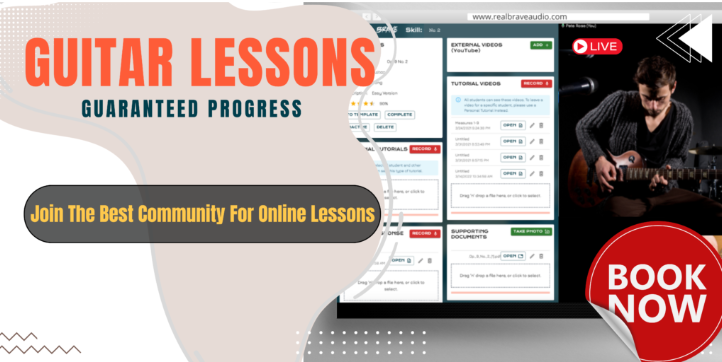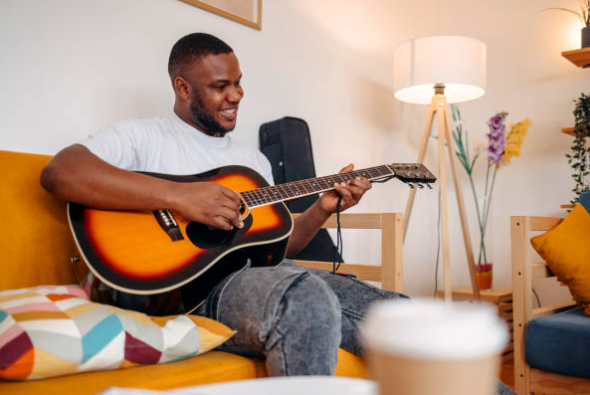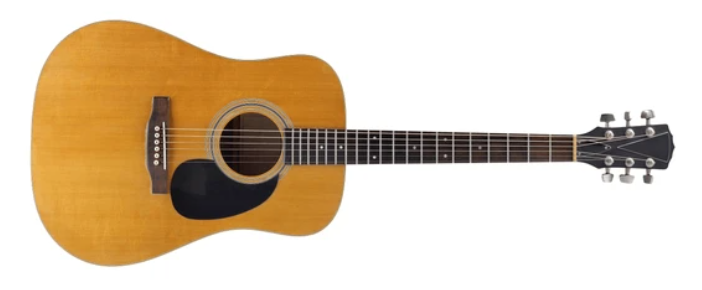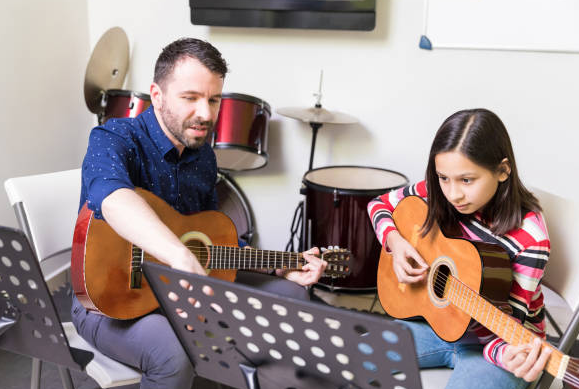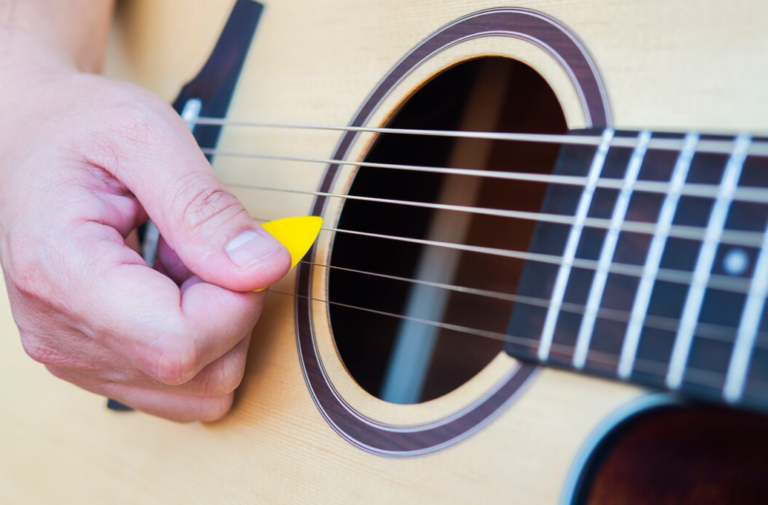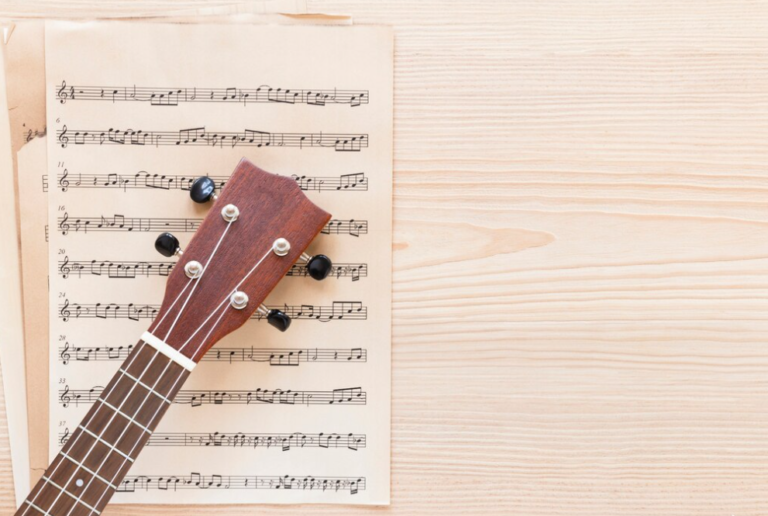Open Chords: Everything You Need To Know About It
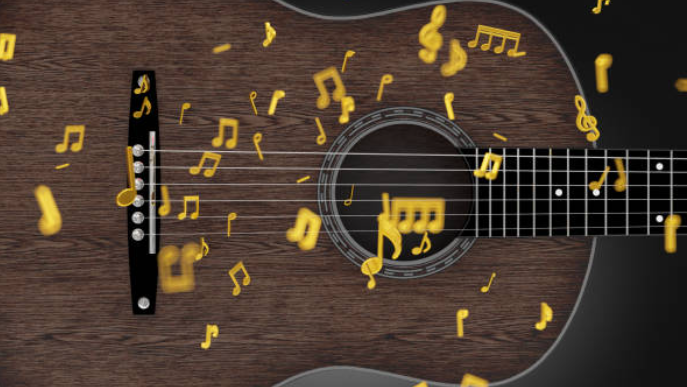
When you’re just starting your journey on the guitar, one of the first things you’ll encounter is open chords. They’re simple, versatile, and foundational to nearly every genre of music. If you’ve ever dreamed of strumming along to your favorite songs or jamming around a campfire, mastering open chords is your gateway. But what exactly are they, and why are they so important? Let’s break it down.
What Are Open Chords?
Open chords are chords that incorporate one or more open strings, meaning strings that are played without pressing any fret. These chords are among the first shapes guitarists learn because they’re relatively easy to play and sound great on acoustic and electric guitars alike.
Examples of common open chords include:
- C Major
- G Major
- A Minor
- E Minor
- D Major
Each of these chords uses a combination of fretted and open strings to produce a rich, full sound.
Why Are Open Chords Important?
Open chords are more than just beginner-friendly—they’re the foundation of rhythm guitar and the building blocks for more advanced techniques. Here’s why they matter:
- Accessible for Beginners
Open chords are easier to fret than barre chords, requiring less finger strength. This makes them perfect for beginners still building hand strength and finger dexterity. - Versatility
You can play thousands of songs with just a handful of open chords. From pop hits to folk classics, open chords unlock a huge repertoire of music. - Muscle Memory Development
Learning to switch between open chords helps develop the coordination and muscle memory needed for more complex chord progressions later on. - Introduction to Music Theory
Open chords are a practical way to learn the basics of music theory, like chord construction and harmony.
How to Get Started with Open Chords
Here’s a step-by-step guide to mastering open chords:
- Start with the Basics
Begin with easy chords like C Major, G Major, and E Minor. These are among the most commonly used and are relatively simple to fret. - Practice Finger Placement
Ensure each finger is pressing down on the string just behind the fret and not muting adjacent strings. Keep your thumb positioned behind the neck for support. - Learn Common Progressions
Practice chord progressions like C – G – Am – F or G – D – Em – C. These are used in countless songs and will improve your ability to switch chords seamlessly. - Use a Metronome
Play along with a metronome to keep your strumming rhythm consistent. This will also help you time your chord changes. - Incorporate Songs into Practice
Choose simple songs that use open chords. Playing actual music is more fun and rewarding than repetitive drills alone.
Pro Tips for Mastering Open Chords
- Press Firmly but Not Too Hard: Applying just the right amount of pressure will produce a clean sound without tiring your fingers.
- Strum Each String Individually: When practicing a chord, strum each string to ensure all notes ring out clearly.
- Don’t Neglect Finger Exercises: Work on finger strength and flexibility to make chord changes smoother.
Building Toward More Advanced Skills
Once you’ve mastered open chords, you’ll be ready to explore:
- Barre Chords: These chords build on open chord shapes but require barring your finger across the fretboard.
- Chord Extensions: Add extra notes to basic chords to create more complex harmonies.
- Fingerpicking: Learn to pluck individual strings for a more intricate sound.
Final Thoughts
Open chords are your first step toward becoming a confident guitarist. They’re simple to learn, rewarding to play, and lay the groundwork for nearly every technique you’ll encounter as you advance. Whether you’re strumming a heartfelt ballad or rocking out to a classic tune, open chords are always there, forming the backbone of your playing.
So, pick up your guitar, start with a C Major, and let the music flow. Before you know it, you’ll be strumming along to your favorite songs and building the foundation for a lifetime of musical enjoyment.
Interested in taking your guitar skills to the next level? Click the below and book a free lesson with us! We’re committed to helping you express yourself freely on the guitar without endless scales and theory. Happy playing!
Author: Daniel Powers Jr, the founder of Real Brave™, serves as the chief inspiration to thousands of students in the Real Brave music instruction program. He’s also the visionary behind PracticePad™, an online platform for live one-on-one online music lessons, lesson tracking, and scheduling. Beyond his entrepreneurial pursuits, Daniel leads a non-profit organization that provides formerly homeless children with access to music education, making a profound impact on their lives. His unwavering dedication to music, innovation, and education continues to inspire individuals to reach their fullest potential while creating positive change in communities. Follow Real Brave on all the socials:
Find us on Instagram: https://www.instagram.com/realbraveaudio/
Find us on Youtube: https://www.youtube.com/@realbraveinc
